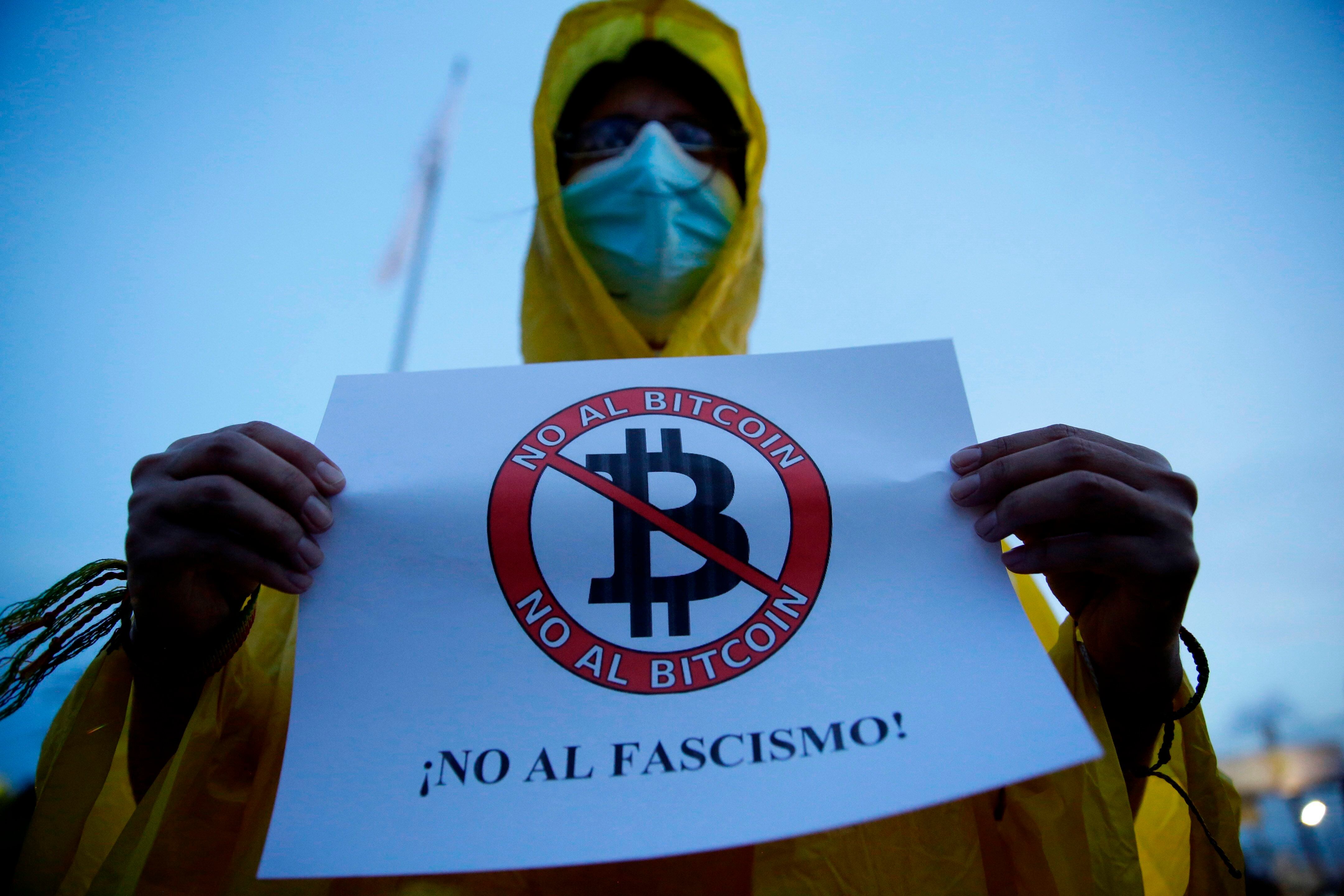Virtual currencies have had a boom recently and bitcoin has achieved its legality in El Salvador
Cryptocurrencies are an innovative digital asset that have experienced monumental growth in recent times due to several contributing elements, including some governments deciding to give them a chance as legal tender; however, they have also suffered setbacks that have called into question their viability, such as the most recent episode known as the “crypto winter.”
Despite this scenario, more and more people have begun to acquire digital currencies to be able to invest in something “safe” and “reliable” both in the short and long term, despite the extreme levels of instability that it constantly suffers.
For this reason, we bring you the price of the most outstanding cryptocurrencies at this time.
Bitcoin is trading today at $17,104.19, which implies a change of -0.14% in the last hours.
The second most popular digital currency on the market, ethereum, has shown a movement of -0.2% in the last 24 hours, so its value stands at $1,263.87.
About Tether US, it is trading at 1 dollar, so in the last day it had a movement of 0%.
For its part, BNB has a value of $284.39, with a change of -1.3%, while Litecoin does the same with $76.63 after a change of 0.34%.
Finally, the dogecoin, one of the virtual currencies that Elon Musk himself has promoted, has a value of 0.09 dollars after presenting a change of -3.71% in the last 24 hours.
The cryptocrash: the nightmare of digital currencies
In May 2022, virtual currencies revealed that, no matter how hard they try, they cannot escape speculative appetite, after the so-called “crypto winter” or “cryptocrash” sank various digital currencies such as bitcoin to minimum values. ethereum and LUNA de Terra, a situation that left many investors in ruins.
It is called “crypto winter” when prices fall unexpectedly and no improvement is seen or forecast in the next six months.
This latest episode was driven by several elements: inflation in the world and the proposal to ban the use and extraction of these in Russia, currently in conflict with Ukraine.
This disturbing term also refers not only to the sharp fall in cryptocurrencies, but also to the decrease in the volume of operations and months of market stagnation, a phenomenon that is not new either, since a similar event was experienced only in 2018.
However, the taste in the mouth that the most recent crisis has left differs from what was experienced four years ago, since this cryptocrash has affected all digital currencies in a domino effect and not just a few, so the fear that the Negative effects that can persist for a longer time are latent.
The last crisis led bitcoin to drop a surprising 77% of its value, until it reached the barrier of $28,000; while others like Ethereum lost 30.88% of its value in that month. The domino effect also affected Terra’s stablecoin, LUNA, which fell more than 100% from $118 to $0.09, a blow from which it still cannot recover.
Despite the current scenario, there are still those who hold out hope that cryptocurrencies will recover, while others, with the same faith, have invested in them, taking advantage of the recent disaster that has also left others without savings.
Digital currencies in Latin America

A group of young Salvadorans speak out against the implementation of bitcoin in El Salvador.
Cryptocurrencies in Argentina: despite the fact that virtual currencies have not been legalized in Argentina, their use has increased after decades of financial instability that citizens have had to face, becoming one of the Latin American nations with the largest presence of cryptocurrencies. cryptocurrencies. Along these lines, President Alberto Fernández has suggested its use to combat inflation.
In addition to bitcoin, another of the most popular cryptocurrencies is LUNA, a token with which it is traded on the Terra system and which can be purchased from the Tienda Crypto platform. Said cryptocurrency has managed to reach an all-time high of up to $119.18.
Cryptocurrencies in Mexico: Banco de México (Banxico) has determined that none of the institutions that participate in the national financial system may use or allow operations of any kind through this means of payment. However, the country ranks 14th out of 27 nations that own virtual currencies, surpassing Venezuela and Colombia, with around 13 million users in 2021, according to a Finder study.
In Mexican territory, businessman Ricardo Salinas Pliego, one of the richest in the country, has shown interest in cryptocurrencies and has assured that several of his businesses will accept bitcoin in the future, including his bank; currently one of his most popular stores already does it.
Cryptocurrencies in Peru: The Central Reserve Bank of Peru (BCR) has made it clear that its mission is not to be the first nor the second central bank to regulate the use of cryptocurrencies, due to the instability that characterizes them. However, days ago the president of the (BCR) assured that the BCR was working on its own digital currency project.
Cryptocurrencies in Colombia: in the South American nation there are more than 500 places where it is allowed to pay with cryptocurrencies. In December 2021, it became the third fastest growing country in the world for bitcoin owners, surpassed only by Russia and Norway, according to Finder.
Cryptocurrencies in Central America: in the government of El Salvador, it has given its vote of confidence and on June 9, 2021 it became the first country to legalize bitcoin as legal currency. In addition, President Nayib Bukele announced his intention to create the first Bitcoin City in Conchagua and it would be financed through bitcoin-backed tokenized bonds.
Project for its regularization
Faced with a scenario in which the world economy faces various challenges such as inflation, the Russo-Ukrainian war, the impact on supply chains due to the coronavirus pandemic and other elements, governments have begun to reconsider previously unthinkable alternatives, such as the fact regularize cryptocurrencies.
Recently, the president of Paraguay, Mario Abdo Benítez, vetoed a bill that was intended to recognize cryptocurrency mining as an industrial activity and, in light of this, establish a percentage to set a consumption quota, among other requirements.
The initiative ―which will continue under discussion in both chambers to decide whether or not to respect the presidential veto― has generated debates regarding the considerations and the possible scope that it could have, since it should be remembered that El Salvador is the only country in the world that has recognized bitcoin as a legal tender currency.
The Paraguayan project, which had already been endorsed by Congress, establishes that the rate for mining digital currencies does not exceed 15% in relation to the current industrial rate, likewise, it grants permits for service providers and miners .
Another of the most outstanding aspects is that it is proposed to create a unit that specializes merely in digital currencies and establish sanctions, as well as other types of measures.
However, the presidential decree alludes that the mining of cryptoactives is characterized by a high consumption of electrical energy and little use of labor, so it cannot be categorized as industrial consumption, but rather as intensive electrical consumption that can also compromise the development of the national industry, since at a certain point the country would be forced to import electricity.
Regarding the facts, the Paraguayan Central Bank has warned that none of the cryptocurrencies that exist today are backed by any monetary authority, so they are not regulated, do not guarantee protection or security to those who use them, and are highly risky investments.

